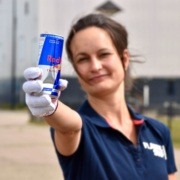Business has blind spot: 85% citizens are plastic tired
Eighty-five per cent of citizens want single-use plastic packaging to disappear completely. This is according to new research by Ipsos commissioned by the World Wildlife Fund (WWF) and the Plastic Free Foundation. Entrepreneurs who abandon packaging or make it more sustainable seem to have tapped into a goldmine – but part of the business community is still deaf and dumb. ‘People are getting fed up with all the plastic in the supermarket.’





